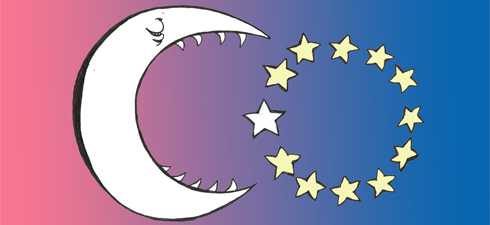The draft resolution penned by the European Parliament’s rapporteur on Turkey, Ria-Oomen Ruijten, welcomes the adoption of constitutional amendments in a referendum on Sept. 12 but underlines “the pressing need for an overall constitutional reform transforming Turkey into a full-fledged pluralistic democracy, with the protection of human rights and fundamental freedoms at its core.”
The resolution praises progress made in reforming the judiciary and on military-civilian democracy, urging “the parliament to become active in ensuring parliamentary oversight of security forces, including full oversight of the defense budget.”
In other areas, however, the document says difficulties persist, citing laws that continue to limit freedom of expression, deterioration of freedom of the press and a growing self-censorship in the Turkish media, and restrictions of Internet sites.
The draft resolution on Turkey will first be discussed at the Committee on Foreign Affairs on Thursday. A second debate at the same committee will take place in February and the document will be brought to the European Parliament in March, when it will be debated and voted on.
The constitutional changes pushed by the government include measures to further curb powers of the military and reform the judiciary. The EU, which Turkey aspires to join, has welcomed the amendments and called for more efforts for further changes. It is not clear, however, if any further reform can be carried out in a near future, given the upcoming parliamentary elections that are likely to take place in June.
The resolution expressed concern about “lack of readiness of government and opposition to work towards consensus on key reforms” and urges the government to strengthen “political plurality in State institutions by involving the opposition into responsibility for the modernization and democratization of the State and society” while also calling upon all opposition forces to constructively engage in the reform process.
It also regrets that the constitutional changes did not include any amendment on closure of political parties and urges the government to bring Turkish laws into line with EU standards. It calls for new reforms to reduce the election threshold which currently stands at 10 percent, and laments that no effort has been made to limit the immunity of parliamentarians for corruption-related offenses.
According to the document, the government also should do more to advance its Kurdish initiative, to prevent honor killings and to address problems of Alevis and non-Muslim communities, “notably concerning their ability to obtain legal personality, to open and operate houses of worship, train clergy and to solve property problems not tackled by the Law on Foundations.”
On terrorism, the resolution “strongly condemns the continuing terrorist violence by the PKK and other terrorist groups in Turkish soil” and says Turkey should intensify its cooperation with the EU.
On the ongoing Ergenekon investigation, which looks into a clandestine organization accused of plotting to incite a coup against the democratically elected government, the document says this and other investigations into coup plans “have to prove the strength and the proper and transparent functioning of Turkish democratic institutions” and expresses concern about “the excessively long pre-trial detention periods and stresses the need for effective judicial guarantees for all suspects.”
European Parliament deplores vote against Iran sanctions
The European Parliament resolution also notes Turkey’s increasingly active foreign policy — praising Turkish efforts in Afghanistan, the Balkans and calling for a Turkish role in efforts to foster dialogue in the Middle East — and calls on both the EU and the Turkish government to coordinate their foreign policy objectives.
Reflecting disagreements between Ankara Turkey and the West over how to deal with Iran’s nuclear program, the document urges the Turkish government “to fully support efforts of the international community to prevent Iran from acquiring nuclear weapons and deplores Turkey’s vote against the relevant UNSC resolution,” referring to Turkey’s vote in May against the imposition of new sanctions on Iran. Ankara says sanctions are counterproductive and calls for a negotiated settlement to an international dispute over Tehran’s nuclear program.
It also criticizes Turkey for its refusal to open its ports and airports to traffic from Greek Cyprus, regrets that NATO-EU cooperation is blocked by NATO member Turkey, and urges Ankara to withdraw a 1995 decision to declare any unilateral Greek move to extend its territorial waters in the Aegean as a “casus belli,” or a reason to declare war.
MOTION FOR A RESOLUTION to wind up the debate on statements by the Council and the Commission pursuant to Rule 110(2) of the Rules of Procedure on Turkey’s 2010 progress report Ria Oomen-Ruijten, on behalf of the Committee on Foreign Affairs
European Parliament draft resolution on Turkey’s progress report 2010
The European Parliament,
–having regard to the Turkey 2010 Progress Report of the Commission (SEC(2010)1327),
–having regard to its previous resolutions of 27 September 2006 on Turkey’s progress towards accession , of 24 October 2007 on EU-Turkey relations , of 21 May 2008 on Turkey’s 2007 progress report , of 12 March 2009 on Turkey’s 2008 progress report , and of 10 February 2010 on Turkey’s 2009 progress report ,
–having regard to the Negotiating Framework for Turkey of 3 October 2005,
–having regard to Council Decision 2008/157/EC of 18 February 2008 on the principles, priorities and conditions contained in the Accession Partnership with the Republic of Turkey (“the Accession Partnership”), as well as to the previous Council decisions on the Accession Partnership of 2001, 2003 and 2006,
–having regard to Rule 110 (2) of its Rules of Procedure,
A.whereas accession negotiations with Turkey were opened on 3 October 2005 after approval by the Council of the Negotiating Framework, and whereas the opening of those negotiations is the starting point for a long-lasting and open-ended process,
B.whereas Turkey has committed itself to reforms, good neighbourly relations and progressive alignment with the EU, and whereas these efforts should be viewed as an opportunity for Turkey itself to modernise,
C.whereas full compliance with all Copenhagen criteria and EU integration capacity, in accordance with the conclusions of December 2006 European Council meeting, remain the basis for accession to the EU, which is a community based on shared values,
D.whereas the Commission concluded that in 2010 Turkey has continued its political reform process, but that lack of dialogue and spirit of compromise between the main political parties has a negative impact on the relations between key political institutions and slows down work on political reforms,
E.whereas Turkey has still not implemented, for the fifth consecutive year, the provisions stemming from the EC-Turkey Association Agreement and the Additional Protocol thereto,
1.Commends Turkish citizens and civil society for their support for further democratisation of Turkey and their commitment to an open and pluralistic society;
2.Is concerned about the ongoing confrontation between the political parties and the lack of readiness of government and opposition to work towards consensus on key reforms; urges the government to enhance political plurality in State institutions by involving the opposition into responsibility for the modernisation and democratisation of the State and society; calls upon all opposition forces to constructively engage in the reform process;
3.Points to the crucial role of a system of checks and balances in the governance of a modern democratic State, which must be based on the principle of separation of powers and balance between the executive, the legislative and the judiciary, on respect of human rights and freedoms, and in particular the media freedom, and on a political culture truly reflecting the plurality of a democratic society;
4.Underlines the role of the Turkish Grand National Assembly as the institution which should crucially contribute to the strengthening of a system of checks and balances, and support, actively and constructively, on the basis of a cross-party commitment, the modernisation reforms, whilst ensuring the democratic scrutiny of government’s policies;
5.Welcomes the adoption of constitutional amendments and urges their proper implementation, fully respecting the ECHR standards; underlines however the pressing need for an overall constitutional reform transforming Turkey into a fully-fledged pluralistic democracy, with the protection of human rights and fundamental freedoms at its core; welcomes the declared readiness of the government as well as of the opposition to undertake such a reform, and calls upon the government to ensure that all political parties and civil society are closely involved in the whole constitutional process;
6.Welcomes a number of the government’s symbolic and goodwill gestures in the areas of religious freedoms, protection of minorities and cultural rights; insists however that systematic improvements are needed; in particular encourages the government to provide the democratic opening with a new impetus, and calls upon the opposition to constructively support and engage in this process;
Fulfilling the Copenhagen criteria
7.Is concerned about the deterioration of freedom of the press and the growing self-censorship within the Turkish media; underlines that independent press is crucial for a democratic society, and points in this context to the essential role of the judiciary to protect and enhance the freedom of the press, thereby guaranteeing the public space for a free debate and contributing to a proper functioning of the system of checks and balances; recalls the need for a new media law to be adopted, addressing, inter-alia, the issues of independence, ownership and administrative control;
8.Regrets that a number of laws continue to limit freedom of expression; reiterates its previous calls to the government to finalise the review on the legal framework on freedom of expression and to bring it, without delay, in line with the ECHR and the ECtHR case law; regrets the repeatedly disproportionate closure of websites and asks the government to prepare amendments to the internet law (No. 5651) in order to make sure that it does not any more limit freedom of expression and restrict the right of citizens to access information;
9.Appreciates the progress made in reforming the judiciary and reiterates its view that judicial independence and impartiality are one of the keys to the functioning of a pluralistic democratic society; asks the government to implement the constitutional amendments adopted in this area in full respect with the separation of powers between the executive and judiciary branches, and in line with European standards;
10.Welcomes that the adopted constitutional amendments finally provide the basis for the establishment of an ombudsman institution and urges the government to prepare and the parliament to adopt the relevant law, allowing for an appointment based on a democratic procedure which would bring into this new office a broadly respected personality;
11.Commends the progress made on civil-military relations, and urges the parliament to become active in ensuring parliamentary oversight of security forces, including full oversight of the defence budget;
12.Underlines that investigations of cases of alleged coup plans such as ERGENEKON have to prove the strength and the proper and transparent functioning of Turkish democratic institutions; is concerned about the excessively long pre-trial detention periods and stresses the need for effective judicial guarantees for all suspects;
13.Regrets that the recent reform of the constitution did not include amendments on the closure of political parties, and urges the government to bring the relevant legislation in line with European standards, pointing in particular to the relevant opinion of the Venice Commission;
14.Reiterates its calls from its previous resolutions for the electoral system to be reformed by reducing the threshold of 10%, thereby strengthening party pluralism and better reflecting the plurality of Turkish society; asks the government to tackle this issue as a priority in order to apply the reform ahead of 2011 parliamentary elections; encourages political parties to reinforce internal party democracy and to strengthen the accountability of elected members vis-à-vis their constituencies;
15.Regrets that no progress has been made in limiting the immunities of members of parliament concerning corruption-related offences, while at the same time there is concern about the adequate protection of expression of non-violent opinions in the parliament; calls therefore upon the government and the parliament to agree on an appropriate reform of the system of parliamentary immunities;
16.Takes note of Turkey’s current chairmanship of Council of Europe Committee of Ministers and encourages Turkey to reflect its commitment to the values of the Council of Europe by signing and ratifying the Framework Convention for the protection of national minorities and by ratifying all additional protocols to the ECHR;
17.Is disappointed that the ratification of the Optional Protocol to the UN Convention against torture has been pending since 2005 and urges the parliament to ratify it without any further delay;
18.Supports the ongoing dialogue of the government with religious communities, including the Alevis and the Christian communities, is however disappointed that no progress has been made with regard to the legal framework for the functioning of these communities, notably concerning their ability to obtain legal personality, to open and operate houses of worship, train clergy and to solve property problems not tackled by the Law on Foundations;
19.Calls therefore upon the government to systematically address these issues without any further delay by amending legislation and by ensuring its proper implementation at all levels of government, including the municipalities; points in this context also to the recommendations adopted by the Venice Commission in spring 2010 concerning the legal personality of religious communities and the ecclesiastical title “Ecumenical” of the Orthodox Patriarchate; reiterates its expectation that the government’s announcements concerning the re-opening of the Halki Greek Orthodox seminary are soon followed by concrete steps;
20.Strongly condemns the continuing terrorist violence by the PKK and other terrorist groups on Turkish soil; encourages Turkey to intensify its cooperation with the EU, notably its counter-terrorism coordinator and Europol, as well as with the EU Member States in the fight against terrorism;
21.Calls upon the government to revitalise its efforts in the framework of the democratic opening to comprehensively address the Kurdish issue, notably by ensuring a consistent interpretation of laws allowing for use of the Kurdish language in political and public life and in education, by amending anti-terror legislation in order to avoid abuse or extensive interpretation, by addressing efficiently the problems of persons displaced from their home regions as a consequence of, inter alia, the long conflict, and by improving further the socio-economic situation in the south-east;
22.Welcomes the strengthening of the legal framework guaranteeing women’s rights and gender equality through the constitutional package; urges the government, and the business and civil society, to take comprehensive measures tackling the poverty of women, increasing women’s social inclusion and participation in the labour market, such as actively supporting the access of girls to secondary education or providing child care facilities; furthermore, encourages the introduction of a system of reserved quotas in order to ensure a meaningful presence of women at all levels in business, the public sector and government; calls in particular upon the political parties to use the opportunity of the upcoming elections to strengthen women’s active engagement in politics;
23.Deeply deplores the increase in honour killings, and urges the government to step up its preventive efforts at all levels, in particular by obliging municipalities to provide sufficient shelters for women in danger, by effectively monitoring full compliance with this obligation, and by putting in place a system of follow-up assistance for women leaving the shelters; urges the judiciary to ensure that violence against women is consistently and consequently punished;
24.Believes that Turkey should pass legislation introducing civil or social service as an alternative to military service, based on free choice; asks the government to ensure full compliance with the ECtHR judgement Ülke vs. Turkey;
Enhancing social cohesion and prosperity
25.Commends the resilience of the Turkish economy vis-à-vis the global economic crisis; stresses that this economic revival is a unique opportunity to increase labour force participation and employment rates, which are still very low, barely reaching 50% only, and to set in motion a process of progressive social inclusion; points to the shared responsibility of the government and social partners, and encourages them to intensify cooperation in order to strengthen the anchors of a socially oriented market economy;
26.Notes the interdependence of the EU and the Turkish economies and points to its potential for enhancing prosperity in both, the EU and Turkey, as Turkey’s integration into the EU market advances;
27.Takes note of the improvements introduced by the constitutional amendments in the area of social dialogue, insists however that also here the key lies in proper implementation into the legal framework, which still needs to be brought in line with ILO standards; encourages all parties of the Economic and Social Council to strengthen their engagement and cooperation to advance this goal;
28.Reiterates the need to strengthen cohesion among Turkish regions and between rural and urban areas; points in this context to the particular role of education and to the need to tackle persisting large regional disparities as far as quality of education and enrolment rates are concerned;
29.Urges the government to fully consider the sustainability and environmental consequences of its plans on new water and energy infrastructure pursued under the South-East Anatolia project (GAP) which risk to destroy the environment and the unique landscape of many regions; in particular stresses the need to ensure that the draft law on nature protection and biodiversity is amended so as to fully respect European standards, and to clearly allocate the responsibility for nature protection within the executive;
Building good neighbourly relations
30.Calls on the Turkish Government to actively support the ongoing negotiations, to contribute in concrete terms to the comprehensive settlement of the Cyprus issue and to facilitate a suitable climate for negotiations by immediately starting to withdraw its forces from Cyprus; strongly urges the two communities in Cyprus to work intensively as asked for by the SG of the UN to capitalise on the progress already made in the negotiations in order to reach a sustainable solution, in line with the relevant UNSC resolutions and the principles on which the EU is founded, to the benefit of the Cypriot citizens, the EU and Turkey;
31.Encourages Turkey to intensify its support for the Committee on Missing Persons in Cyprus, in particular by facilitating its access to military zones in the north;
32.Urges Turkey to ratify the protocols with Armenia, to open the border with this neighbour, and to use its regional weight as one of the key powers in the Caucasus to enhance confidence building measures and to contribute to the solution of the frozen conflict around Nagorno Karabach;
33.Takes note of the intensified efforts between Turkey and Greece for improvement of their bilateral relations; regrets however that the casus belli declared by the Turkish Grand National Assembly towards Greece has still not been withdrawn;
34.Appreciates the deepening of relations between Turkey and Iraq, including its Kurdish regional government, and points in particular to Turkey’s contribution to the stabilisation of Iraq;
Advancing EU-Turkey cooperation
35.Deplores the fact that the Additional Protocol to the EC Turkey Association Agreement has still not been implemented by Turkey, which continues to affect the process of negotiations; calls on the government to fully implement it;
36.Takes note of the progress achieved by Turkey on the energy chapter and urges the Council once again to open negotiations on this chapter without any further delay; calls on the Turkish government to step up its efforts in negotiations on joining the Energy Community Treaty; welcomes the ratification of the Nabucco Intergovernmental Agreement;
37.Welcomes the substantial progress that has been made towards finalising negotiations on an EU-Turkey readmission agreement, and calls upon the Turkish government to ensure that, until this agreement enters into force, existing bilateral agreements are fully implemented; underlines the importance of intensification of the cooperation between EU and Turkey on migration management and border controls, also given the large percentage of illegal immigrants entering the EU territory via Turkey; is of the view that once the readmission agreement enters into force, the Commission will prepare negotiations on a visa facilitation agreement, easing in particular the entry conditions of businesspeople and students travelling to the EU;
38.Takes note of Turkey’s increasingly active foreign policy, aimed at strengthening its role as regional player; urges the HR/VP to take this dimension in full consideration and engage with Turkey for the coordination of objectives and the proper valorisation of EU interests; calls upon the Turkish government to step up its foreign policy coordination with the EU;
39.Urges the Turkish government to fully support efforts of the international community to prevent Iran from acquiring nuclear weapons, and deplores Turkey’s vote against the relevant UNSC resolution; is of the view that Turkey could contribute to the democratisation and the strengthening of human rights in Iran, whilst coordinating its efforts with the EU;
40.Believes that Turkey should play an important role in fostering dialogue in the Middle East Peace process, and calls upon Turkey to resume its constructive mediation and in particular to contribute to the strengthening of the Palestinian Authority;
41.Appreciates Turkey’s constructive engagement supporting the efforts of the transatlantic partners in Afghanistan and in the Balkans; regrets however that NATO-EU strategic cooperation beyond the “Berlin Plus” arrangements is blocked by Turkish objections;
42.Calls on the Turkish Government to sign and submit for ratification the Statute of the International Criminal Court, thus further increasing Turkey’s contribution to, and engagement in, the global multilateral system;
43.Instructs its President to forward this resolution to the Council, the Commission, the Secretary General of the Council of Europe, the President of the European Court of Human Rights, the governments and parliaments of the Member States and the Government and Parliament of the Republic of Turkey.
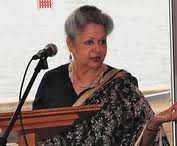 Re: your question and proposal to the House of Lords -16.06.2011
Re: your question and proposal to the House of Lords -16.06.2011
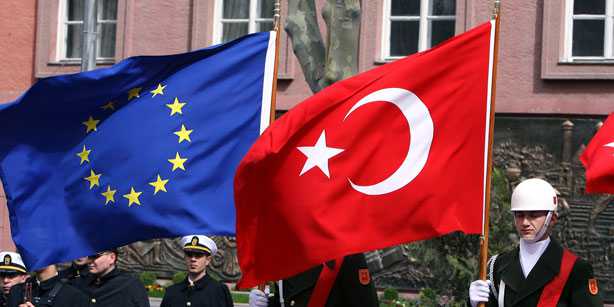

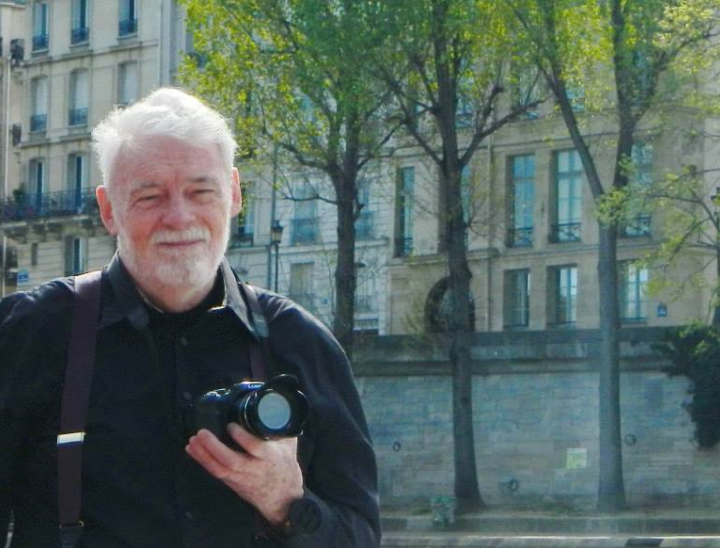
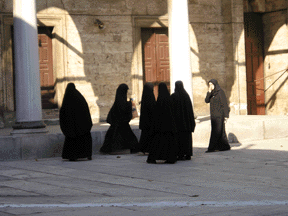
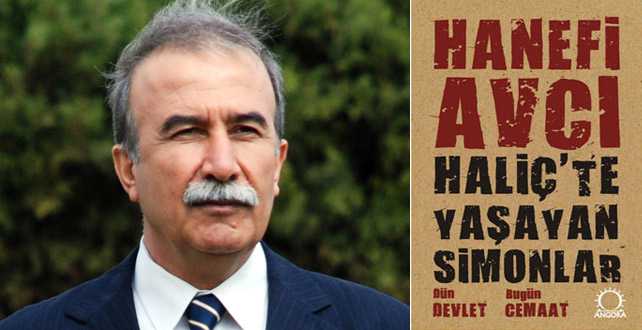 for writing a best seller. His book laid bare the widely suspected fact that Turkey’s highest government institution’s—police, army, and judicial system—had been infiltrated and indeed subverted by a religious cemaat, the Fethullah Gülen movement. (3) Since Avcı himself was once an eager activist for Gülen’s cemaat, the book has a certain whiff of authenticity.
for writing a best seller. His book laid bare the widely suspected fact that Turkey’s highest government institution’s—police, army, and judicial system—had been infiltrated and indeed subverted by a religious cemaat, the Fethullah Gülen movement. (3) Since Avcı himself was once an eager activist for Gülen’s cemaat, the book has a certain whiff of authenticity. For those interested in a dramatic representation of this incident see the stunning classic film (1937) The Life of Emile Zola:
For those interested in a dramatic representation of this incident see the stunning classic film (1937) The Life of Emile Zola: 